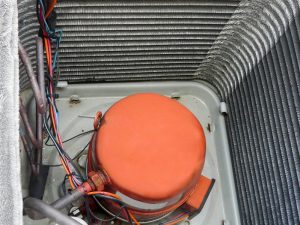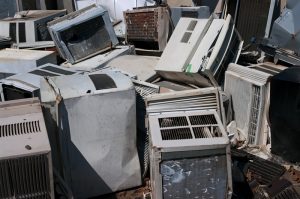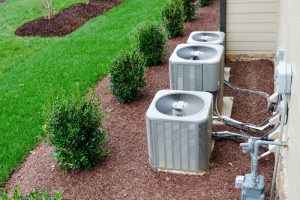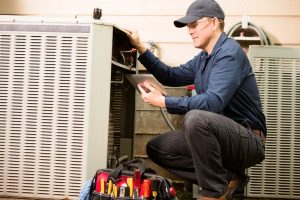When it comes to keeping your home comfortable during the hot summer months, choosing the right air conditioning system is crucial. With various options available, each offering unique benefits and considerations, making an informed decision about air conditioning installation in Dyker Heights, Brooklyn can seem overwhelming.
As an experienced HVAC company that’s been serving Staten Island since 1955, we’re here to guide you through the main types of AC systems—central air conditioning, ductless mini-split systems, and ducted heat pumps. Let’s explore what each system has to offer and help you find the best solution for your home.



 There’s no such thing as a “non-vital” part of your central air conditioning system. All parts need to work well for the system to operate effectively and efficiently. But if any part were to be awarded the title “The Most Important AC Component,” it would be the compressor. It’s the literal heart of the air conditioner because it is what causes the refrigerant to circulate through the system. The compressor changes the refrigerant to a high-pressure hot gas that allows for the heat exchange process to start. Without a working compressor, an air conditioning system will function as nothing more than a large fan blowing around room temperature air.
There’s no such thing as a “non-vital” part of your central air conditioning system. All parts need to work well for the system to operate effectively and efficiently. But if any part were to be awarded the title “The Most Important AC Component,” it would be the compressor. It’s the literal heart of the air conditioner because it is what causes the refrigerant to circulate through the system. The compressor changes the refrigerant to a high-pressure hot gas that allows for the heat exchange process to start. Without a working compressor, an air conditioning system will function as nothing more than a large fan blowing around room temperature air.
 In our last post, we put up a friendly spring reminder:
In our last post, we put up a friendly spring reminder:  The second half of the summer is when the heat can get brutal. Unfortunately, this is also the time when you’re likely to have the blues with your air conditioner. Considering all the stress that the early summer months place on an older AC, now is the time when the cooling system might start to fall behind—or even crash completely and leave you without any cooling at all.
The second half of the summer is when the heat can get brutal. Unfortunately, this is also the time when you’re likely to have the blues with your air conditioner. Considering all the stress that the early summer months place on an older AC, now is the time when the cooling system might start to fall behind—or even crash completely and leave you without any cooling at all. Many types of malfunctions can cause your home’s air conditioning system to fail or stop working altogether. A fan motor burns out, and that means no air circulating through the house. Bad wiring to the thermostat means you can’t turn the AC on. But there are some malfunctions that can mean the end of your air conditioner—the point where the only repairs that may fix it will cost more than the price of getting a new AC.
Many types of malfunctions can cause your home’s air conditioning system to fail or stop working altogether. A fan motor burns out, and that means no air circulating through the house. Bad wiring to the thermostat means you can’t turn the AC on. But there are some malfunctions that can mean the end of your air conditioner—the point where the only repairs that may fix it will cost more than the price of getting a new AC. Among the more common malfunctions that can occur with a residential air conditioning system is something called short-cycling. The brief definition of short-cycling is that it’s when the compressor of an air conditioner turns on and off rapidly—too rapidly to do much good and too rapidly for the good of the air conditioner.
Among the more common malfunctions that can occur with a residential air conditioning system is something called short-cycling. The brief definition of short-cycling is that it’s when the compressor of an air conditioner turns on and off rapidly—too rapidly to do much good and too rapidly for the good of the air conditioner. At the start of the summer,
At the start of the summer,  When it comes to the size of an air conditioner in a house, the “Goldilocks Rule” applies: you don’t want an air conditioner that’s too small or too large, but one that’s just right. Finding the right size of air conditioner is a tricky job, however, and it’s not something you want to make a guess at. You must have skilled professionals handle the job of
When it comes to the size of an air conditioner in a house, the “Goldilocks Rule” applies: you don’t want an air conditioner that’s too small or too large, but one that’s just right. Finding the right size of air conditioner is a tricky job, however, and it’s not something you want to make a guess at. You must have skilled professionals handle the job of